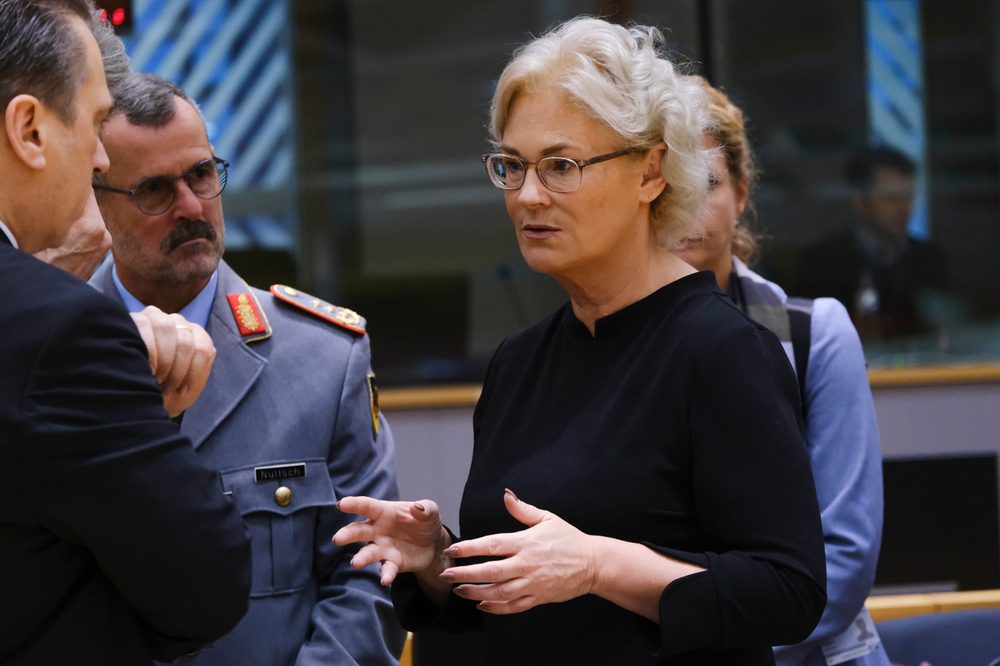
A Friday, January 13th exclusive by BILD reported having learned from multiple sources that German Defense Minister Christine Lambrecht (SPD) plans to resign. According to the newspaper, the decision was made of her own volition, while an exact date for her leaving has not yet been set.
Since taking office in December 2021, Lambrecht’s trajectory has been one fraught with mishaps, gaffes and, some have argued, displays of outright incompetence. Because of this, the defense minister has been the recipient of no small amount of criticism. A New Year’s video message Lambrecht had uploaded to her private Instagram proved to be the proverbial last straw.
As previously reported by The European Conservative, the video recorded Lambrecht’s musings on the past year. Poor audio quality and a tone-deaf message, however, did little to improve her position.
German media vociferously condemned the lack of seriousness and amateurism Lambrecht exhibited. Many thought that her position had, as a result, become untenable. The SPD’s coalition partners in the government, the FDP and the Greens, were equally disturbed, as many were calling for her resignation.
It appears Lambrecht is considering giving in to these calls. Her rumored upcoming resignation has also been anticipated by Süddeutsche Zeitung, which reported that the minister would do so early this week. Thus far, the rumors remain unaddressed by the defense ministry as well as Lambrecht’s own party.
When BILD asked Chancellor Olaf Scholz (SPD) on whether the rumours that his fellow party member was leaving were true, Scholz simply ignored the question.
Meanwhile, speculation is rife over who might take over from Lambrecht when and if the time comes. According to Tagesschau, Armed Forces Commissioner of the Bundestag Eva Högl, Parliamentary State Secretary for Defense Siemtje Möller, Minister of Labour and Social Affairs Hubertus Heil, and Leader of the Social Democratic Party Lars Klingbeil are among those being considered.
All are SPD members, since, as stipulated in the coalition agreement, SPD has the prerogative to deliver not just the minister of defense, but the whole department.
Yet, since Scholz campaigned on putting together a cabinet where both sexes are equally represented, he would be compelled to again appoint a woman. While a male appointee is theoretically possible, the prospect is unlikely; this would require a major reshuffle in the cabinet, one in which gender quotas are dutifully preserved.
In the event of such a cabinet reshuffle, it is equally conceivable that one of the coalition partners could be called upon to assume responsibility for the defense ministry. For this eventuality, the name of FDP politician Marie-Agnes Strack-Zimmermann has been floated. A member of the Bundestag since 2017, she has served as chairman of the defense committee there since 2021.
Yet, time is no friend to whoever is eventually appointed. With virtually no preparation, the new defense minister will soon be attending several critical events. Foremost of these are a private meeting with U.S. Defense Secretary Lloyd Austin, as well as a conference at the U.S. military base in Ramstein, where Western allies are to discuss further arms deliveries to Ukraine.
In addition, the intractable dossier that is Germany’s €100 billion defense fund awaits—the mammoth sum of which is yet to be allocated. In response to the Russo-Ukrainian war, the historic boost to the country’s Bundeswehr (German armed forces) was proposed by Chancellor Scholz.
Whomever Scholz picks to lead Germany through her remilitarisation phase, the decision itself—now more than ever—requires both swiftness and prudence.
